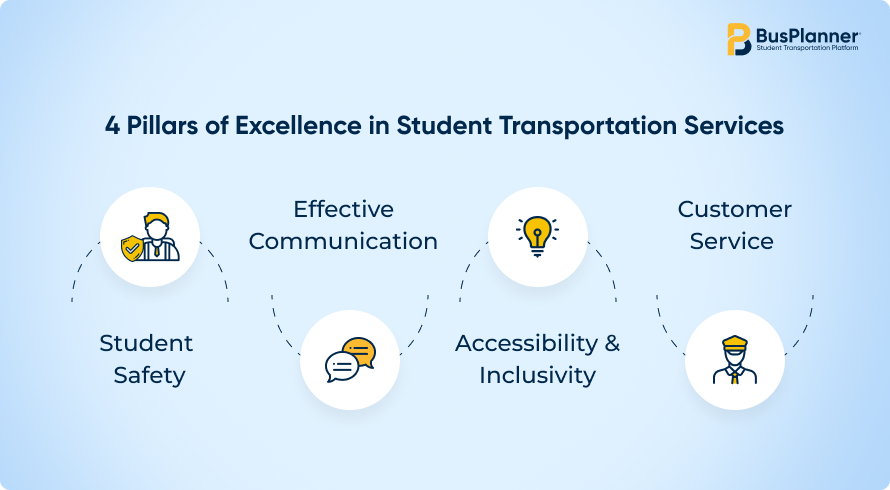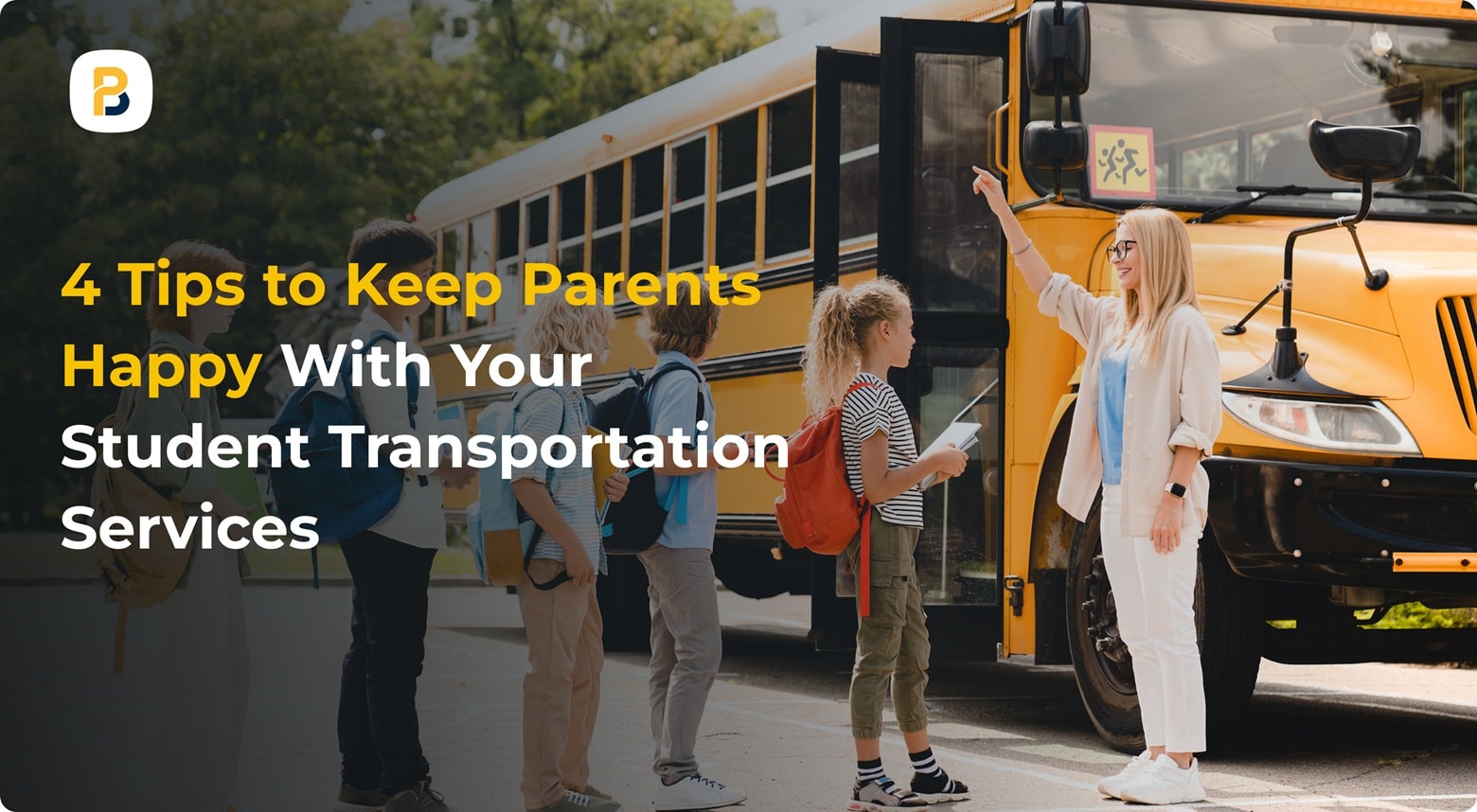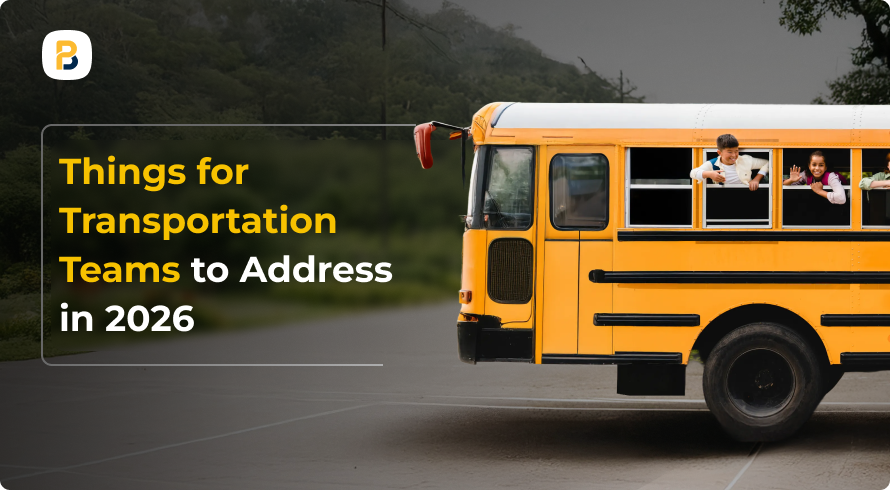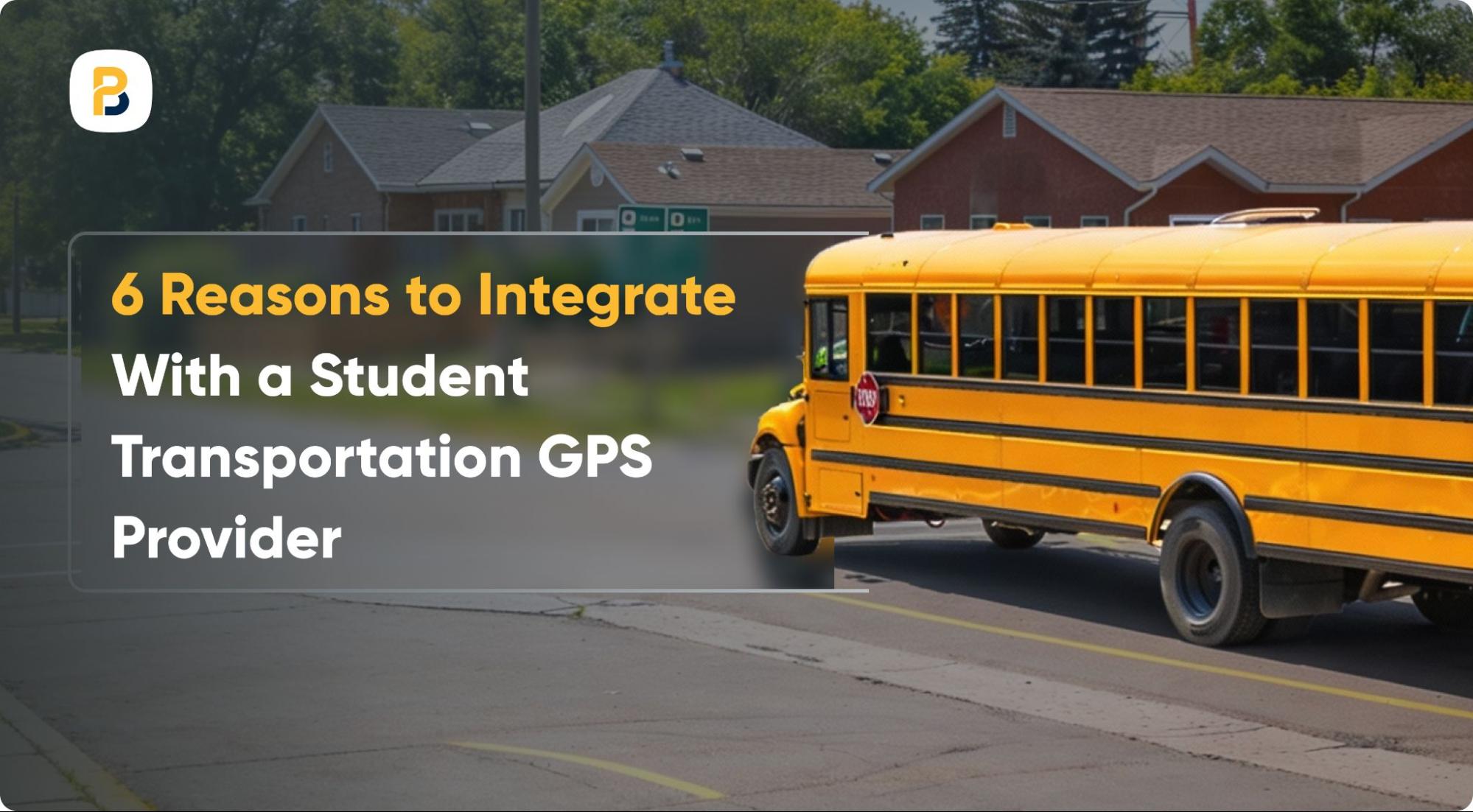For parents, school buses and drivers represent safety, trust, and reliability. They play a crucial role in a child’s daily routine, providing parents with peace of mind and helping students begin and end their school day on a positive note.
To foster a strong relationship with parents and enhance their satisfaction with your student transportation services, consider implementing the following:
1. Prioritize Student Safety
For parents, nothing matters more than knowing their children are safe from the moment they step onto the bus until they arrive at school or back home.
For a strong safety culture, districts must:
- Proactively Manage Fleets: Modern school bus fleet management software enables regular vehicle inspections and maintenance, helping to prevent accidents and breakdowns.
- Implement Strict Protocols: Clear pick-up and drop-off protocols must be established, and all drivers must adhere to these protocols.
- Train Drivers: Ongoing training for drivers ensures that people behind the wheel are qualified, responsible, and well-prepared.
With the right systems and technology in place, safety becomes part of your daily practice, something parents can see and trust in action. When parents know you’re proactive about safety, they’ll have peace of mind.
2. Communicate Clearly and Consistently
Parents want to feel informed about their child’s journey. In fact, during a recent webinar, Brian Joyner from Union County Schools emphasized that, “Parents want to know where the bus is and where their child is from pick-up to drop-off.” That level of transparency is now an expectation. Parents value:
- Timely Updates: If there’s a delay or reroute, families should know right away, not after they’ve already been waiting at the stop.
- Clarity: Messages should be simple and free of jargon. Parents don’t want to decode long, confusing notifications.
- Consistency: Irregular communication creates more frustration than none at all. Parents need a steady flow of updates, even when everything is running smoothly.
Consistent communication helps reduce anxiety and fosters trust. A dedicated mobile app for student transportation helps districts centralize all communication in one place, send push notifications in real time, and even allow parents to check the estimated time of arrival for their child’s bus.
3. Support Students With Special Needs
For families of students with special needs, transportation isn’t just about getting to school; it’s about ensuring their child is cared for with the right accommodations. Districts must:
- Offer Specialized Training: Drivers should know how to support children with mobility issues, behavioral needs, or medical conditions.
- Equip Vehicles to Ensure Accessibility: Buses should be equipped with wheelchair lifts or harness systems that meet safety standards.
Parents of special needs students balance unique challenges every day, so when they see a student transportation service that understands and adapts, it’s a relief.
4. Train Drivers on Customer Service
Drivers are the face of your service, and the way they carry themselves directly shapes parents’ confidence. A driver who is approachable, respectful, and attentive can make the daily routine feel smooth and reassuring.
Investing in customer service training for drivers is just as important as teaching them safety protocols. This can include:
- Polite and Professional Interactions: Drivers must greet the children and parents politely and warmly, especially during busy or stressful moments at pick-up and drop-off.
- Conflict Resolution Skills: The ability to calmly handle issues between students or address concerns without escalating tension.
Final Thoughts

Parents don’t just want transportation; they want reliability, safety, and peace of mind. By focusing on communication, safety, and responsiveness, your student transportation service can keep parents happy with student transportation services.
To learn how BusPlanner’s all-in-one student transportation platform can help you keep parents satisfied, contact us now!







